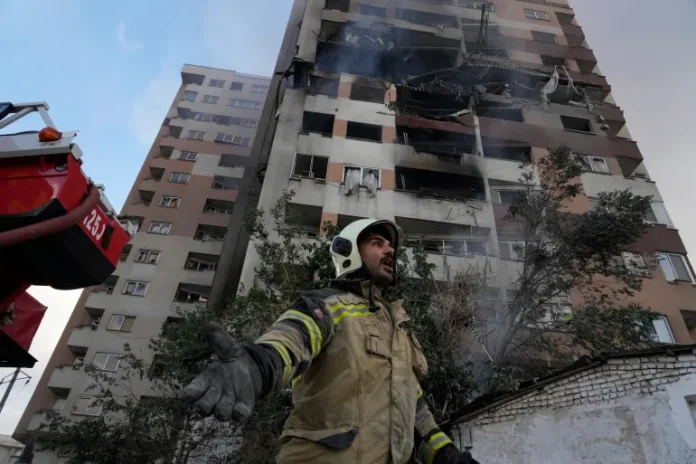– Mohammed Talha Siddi Bapa
The Middle East stands at a dangerous crossroads once again as Israel, in a brazen and unilateral move, launched a series of strikes deep inside Iranian territory. Codenamed Operation Rising Lion, the Israeli assault targeted nuclear and military facilities, killing several senior Iranian officials, including IRGC Commander Major General Hossein Salami and two nuclear scientists.
Though Israel claims the attack is a defensive measure against Iran’s nuclear ambitions, the scale and suddenness of the operation have alarmed peace advocates across the globe. The international community watches with bated breath as Iran’s leadership, visibly shaken yet measured, vows to respond at a time and place of its choosing.
Some observers draw parallels with Israel’s 1981 strike on Iraq’s Osirak nuclear reactor under Saddam Hussein. But to imagine that Iran today is merely a replay of that era – militarily weak, politically isolated, and diplomatically vulnerable – may prove to be a grave strategic miscalculation. Iran is not Saddam’s Iraq. It is a regional power with a deeply entangled network of allies and a sophisticated military infrastructure. Any attempt to provoke or destabilise it risks triggering a far wider conflagration than the architects of such strikes may have calculated.
Moreover, many believe that with growing international condemnation over its blockade and starvation policies in Gaza, Israel’s leadership – especially under Prime Minister Netanyahu – has found itself increasingly cornered in the court of global opinion. The sudden escalation against Iran, then, appears to some as a deliberate attempt to shift the world’s gaze away from the humanitarian catastrophe in Gaza and onto a new axis of conflict.
While Israel insists on the legality of its actions, many global analysts and human rights groups have condemned the strikes as reckless provocation, threatening to destabilise not just the Middle East, but the global balance of power. The United States, under the returning leadership of Donald Trump, has distanced itself from direct involvement but remains a vocal supporter of Tel Aviv’s “right to defend itself” – a narrative that critics say whitewashes acts of aggression.
The silence of some Arab regimes and their passive acquiescence to this unilateral aggression reflects a tragic moral retreat in the region. Those who bow in submission to Washington and its unaccountable ally in Tel Aviv may believe they are purchasing security, but history warns that appeasement rarely guarantees safety – it merely delays confrontation.
By contrast, Iran – isolated, sanctioned, and demonised – now faces an existential moment. If it exercises restraint, prudence, and wisdom in its response, it could emerge stronger not just militarily, but diplomatically, as a symbol of resilience in the face of overwhelming force.
As the world hurtles toward another possible regional conflagration, one truth stands out starkly: those who resist hegemonic domination and stand for their sovereignty, even at great cost, are not warmongers – they are, in fact, defenders of dignity. Peace, after all, is not the silence of the oppressed, but the harmony of justice.
The call to conscience now extends to all peace-loving nations, human rights organisations, and ordinary citizens across the globe. Will they raise their voice before the sound of bombs drowns out the language of diplomacy?




